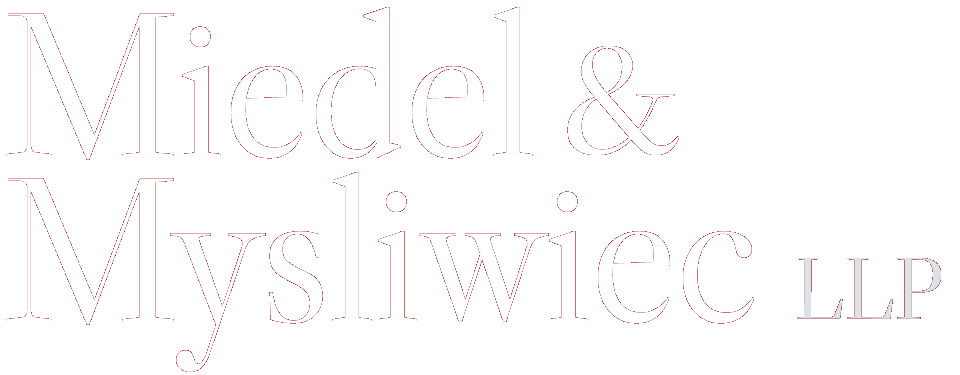Even though both Congress and the new administration are loudly advocating for deregulation, health care professionals and businesses continue to face a complicated array of federal and state laws and regulations. Failure to comply with these laws can have profoundly negative consequences. One such consequence unique to the health care field is the List of Excluded Individuals and Entities (LEIE). Often, even well-intentioned, experienced health care providers make mistakes in trying to comply with regulations, resulting in listing on the LEIE.
Miedel & Mysliwiec, LLP regularly represents doctors, small medical offices, and other health care providers in criminal or civil cases that raise issues related to the exclusion process. Even when there is a successful outcome for such a client in a criminal case or civil false claims act case, that client may face the threat of exclusion.
The Office of Inspector General (OIG), part of the U.S. Department of Health and Human Services (HHS), administers the LEIE. Any individual or business placed on the LEIE is excluded from participating in any federal health care program. The federal government will not reimburse anyone in the LEIE for services. Moreover, entities that employ or hire individuals on the LEIE face substantial financial penalties. The OIG maintains and regularly updates its LEIE database.
What actions can lead to placement on the LEIE?
The LEIE maintains listings in two categories: mandatory exclusion and permissive exclusion. The following activities will lead to mandatory exclusion for at least five years:
- Any conviction of Medicaid, Medicare or other health program-related crimes
- Any conviction relating to the abuse or neglect of patients
- A felony health care fraud conviction
- A felony conviction involving the sale, use or manufacture of controlled substances
Miedel & Mysliwiec, LLP often represents health care providers and their employees in cases where the government is considering or has brought criminal charges against a doctor, a health care practice, or its employees. There are many possible defenses in a case involving health care fraud allegations. Successfully defeating such allegations avoids mandatory exclusion.
Some health care professionals may be under the impression that a criminal act is necessary for placement on the LEIE. This is not true. Permissive exclusions are based on much broader criteria. The OIG can place someone on the LEIE without any type of criminal conviction. Types of conduct that can lead to permissive exclusion include:
- Submitting false claims
- Engaging in kickbacks
- Making false statements or misrepresentations
- Failing to provide adequate care
- Failing to repay student loans
- Revocation, suspension or surrender of one’s license to practice medicine
- Misdemeanor controlled substance convictions
Experienced and skilled legal counsel are necessary to challenge the accuracy of such allegations.
How does the exclusion process work?
The OIG will typically conduct an investigation and provide notice before rendering an exclusion decision. This document, known as the Notice of Intent to Exclude, contains the following information:
- The legal basis for the exclusion
- A description of the events that led to the proposed exclusionary period
- The proposed length of exclusion
If you become aware that you or your business is being investigated or intensively audited regarding billing or other practices, it is important to seek legal advice long before receiving a Notice of Intent to Exclude. The fight to avoid exclusion is often won or lost at the investigation stage.
Upon receipt of a Notice, the individual or business can request a hearing, or present documentation to the OIG. Even if the OIG then decides to go ahead with exclusion, there are several additional opportunities to contest the decision.
Any entity or person accused of conduct that could lead to exclusion is facing a “bet the company” or career-ending situation. Once excluded, such health care providers are likely to be dropped from insurance plans, face possible licensing sanctions, and other collateral consequences. Knowledgeable and committed legal counsel are critical to advancing the strongest possible defenses in these circumstances.

